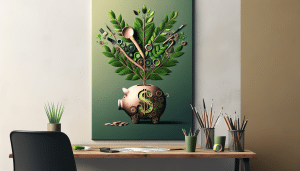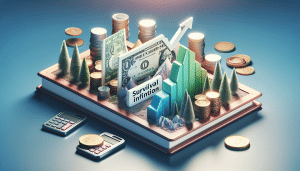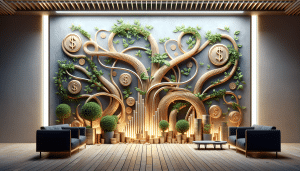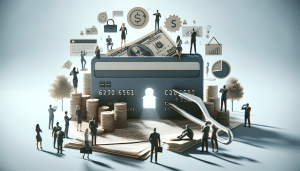Investing in Experiences Over Material Possessions
Emily Clarke August 14, 2025
In recent years, there has been a noticeable shift in how individuals allocate their financial resources. As consumers, many are moving away from investing in material possessions and, instead, are placing greater value on experiences. From traveling the world to attending live events, people are increasingly prioritizing experiences that foster personal growth, memories, and emotional well-being over the temporary satisfaction that material goods provide.
This change in mindset isn’t just a passing trend—it’s an evolving cultural shift with significant implications for both the economy and individual satisfaction. But why are more people choosing to invest in experiences, and what does it mean for the future of consumption and spending?
In this article, we will explore the growing trend of investing in experiences over material possessions. We’ll examine the psychological, social, and economic reasons behind this shift, how it’s affecting the way we spend money, and why experiences are seen as the key to long-term happiness.

The Rise of Experience-Based Consumerism
For decades, material possessions such as cars, homes, clothing, and gadgets were symbols of status and success. However, in recent years, there has been a noticeable shift in how people view consumption. Instead of focusing on accumulating things, many are now seeking fulfillment through experiences that foster personal growth, connection, and enjoyment.
Why Experiences Matter More Than Things
- Memories Over Objects: Experiences provide lasting memories that we can cherish, while material possessions tend to lose their appeal over time. Studies have shown that people derive more lasting happiness from experiences than from acquiring new items.
- Personal Growth: Many people are seeking experiences that challenge them and help them grow as individuals, such as travel, learning new skills, or attending educational workshops. These experiences often offer a deeper sense of fulfillment compared to material goods.
- Social Connection: Shared experiences, such as concerts, vacations, or group activities, foster social bonds and strengthen relationships. These experiences are often more meaningful than material possessions, as they contribute to our sense of belonging and connection.
As a result, spending on travel, live events, and personal development activities is on the rise. Consumers are looking to invest in activities that create emotional value, rather than merely accumulating possessions that may end up gathering dust.
Key Takeaway: The growing focus on experiences is reshaping the way we spend, with people seeking fulfillment, personal growth, and stronger social connections through the activities they engage in.
The Psychological Appeal of Experiences
While material possessions may bring short-term satisfaction, they often fail to provide long-lasting happiness. On the other hand, experiences tend to lead to greater overall satisfaction and well-being. But what exactly makes experiences so appealing?
Psychological Factors Behind the Shift
- Hedonic Adaptation: People quickly adapt to material goods, meaning the initial joy of acquiring something new diminishes over time. This phenomenon, known as “hedonic adaptation,” is why new possessions often lose their appeal, while the memories of experiences continue to provide joy.
- Identity and Self-Expression: Experiences often become part of our personal identity. For example, traveling to a new country, attending a major concert, or participating in a challenging outdoor adventure can become integral parts of who we are. They help shape our sense of self in ways material goods simply cannot.
- Anticipation and Reflection: Anticipating an upcoming experience can bring excitement and joy, while reflecting on past experiences allows us to relive positive emotions. Both of these phases—before and after the experience—offer a sense of happiness and fulfillment that material possessions don’t provide.
The Impact of Experiences on Happiness
A study published in the Journal of Positive Psychology found that experiences provide more long-term happiness than possessions because they are more likely to lead to lasting memories and meaningful connections. Unlike material goods, which often lose their value over time, experiences continue to provide joy long after they have occurred.
Practical Tip: When making purchasing decisions, consider the long-term emotional value of the experience. Will it create lasting memories or foster personal growth?
Key Takeaway: Experiences have a greater psychological impact than material possessions because they provide long-lasting happiness, fulfillment, and a sense of identity that objects cannot replicate.
Social and Cultural Shifts: The Influence of Social Media and FOMO
Social media platforms like Instagram, Facebook, and TikTok have amplified the desire for experiences. People increasingly share their adventures, travels, and events with their followers, fueling a cultural shift toward valuing experiences over possessions. The phenomenon of “Fear of Missing Out” (FOMO) has become a significant driver of this shift.
The Role of Social Media in Shaping Consumer Behavior
- Curated Lifestyles: Social media influencers and regular users alike frequently post about travel destinations, concerts, festivals, and other experiences, creating a curated version of the ideal lifestyle. This has contributed to the societal shift toward valuing experiences that can be shared and enjoyed collectively.
- FOMO (Fear of Missing Out): Social media intensifies FOMO, pushing individuals to participate in experiences to feel included and connected to their peers. As a result, experiences like vacations, special events, and social gatherings are becoming more sought after than material possessions.
Experiences as Social Capital
In the age of social media, experiences have also become a form of social capital. People often use experiences to display their lifestyle and achievements, which can be a source of validation and social recognition. This cultural shift emphasizes the value of experiences over accumulating things.
Practical Tip: Use social media as a tool for inspiration. While FOMO can sometimes encourage unnecessary spending, it can also motivate you to seek out new experiences that contribute to personal growth and happiness.
Key Takeaway: Social media has played a significant role in promoting the cultural value of experiences, as people increasingly seek to share and document their adventures for social validation and connection.
Experiences in the Marketplace: The Shift in Consumer Spending
The shift from material possessions to experiences is not just a cultural phenomenon but also a marketplace trend. From travel and entertainment to wellness retreats and educational courses, industries are evolving to meet the growing demand for meaningful experiences.
Experience-Based Spending
- Travel: People are spending more on travel experiences that allow them to explore new cultures, cuisines, and natural landscapes. Airbnb, Expedia, and similar platforms have made booking unique experiences more accessible, allowing consumers to create customized, unforgettable trips.
- Wellness: The wellness industry has seen a significant rise in demand for experiences like yoga retreats, spa weekends, and fitness vacations. These activities focus on mental and physical well-being, offering participants the opportunity to disconnect from their daily routines and recharge.
- Live Events and Concerts: As restrictions ease, live events such as concerts, theater performances, and sporting events are seeing a resurgence. These events offer an unparalleled sense of connection, both with others and with the artists performing.
The Experience Economy
The term “experience economy” refers to the growing demand for experiences that provide emotional, intellectual, or sensory engagement. Companies are recognizing that offering memorable experiences can create lasting customer loyalty, as these experiences tend to leave a strong impression on consumers.
Practical Tip: Shift your spending habits toward experiences that align with your values and passions. Rather than purchasing more “stuff,” consider investing in activities that contribute to your long-term well-being.
Key Takeaway: As the experience economy grows, businesses are adapting by offering unique, personalized experiences that cater to consumers’ desire for meaningful, memorable interactions.
Conclusion
The trend of investing in experiences over material possessions reflects a deeper shift in consumer priorities. As people seek greater fulfillment, personal growth, and meaningful connections, experiences are increasingly seen as the true source of happiness. Whether through travel, wellness, or learning opportunities, experiences offer lasting value that material goods simply cannot provide.
This shift in consumer behavior is not just about rejecting materialism—it’s about embracing a lifestyle that prioritizes what truly enriches our lives. In a world of constant change and rapid technological advancements, investing in experiences is a powerful way to create memories, build relationships, and foster personal growth.
As we continue to navigate the evolving landscape of consumerism, it’s clear that experiences are the key to a more fulfilling, meaningful life. By focusing on experiences that contribute to our emotional and psychological well-being, we can build a future that’s not just about having more, but about living better.
Reference
- The Psychological Appeal of Experiences- https://www.becomingminimalist.com
- Integrating Wellness into Busy Lifestyles- https://blog.aifsabroad.com
- Economic Implications- https://medium.com







